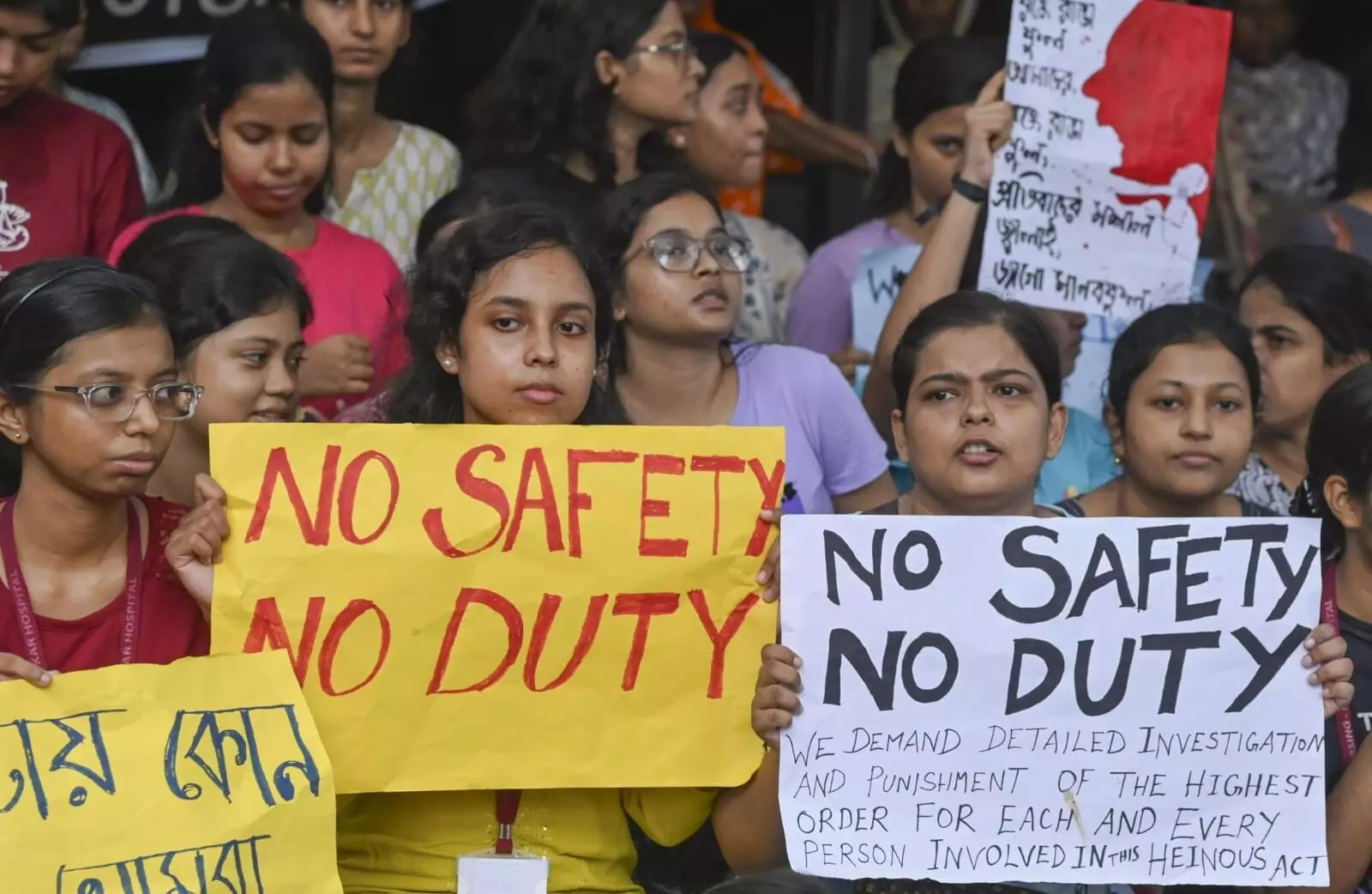Doctors urge hospitals be declared ‘safe zones’, call for uniform safety measures nationwide
A recent online survey by IMA exposed the fear among women doctors, particularly during night shifts, adding impetus to the appeal for ‘safe zones’
By Neelambaran A
Hyderabad: Violence in healthcare institutions has seen a surge in recent years, with incidents of spontaneous and premeditated violence against healthcare workers. This called for an urgent intervention from the governments to extend safety measures across all hospitals and ensure healthcare professionals discharge their duties without fear.
Hospitals as safe zones
Besides political protests and demands for speedy punishment for the culprit and others behind the heinous crime, the medical fraternity has been demanding the respective governments to declare hospitals as ‘safe zones’.
Protests following the brutal rape and murder of the resident doctor of the RG Kar Medical College and Hospital in Kolkata and solidarity protests across the country have also raised the demand.
A recent online survey by the Indian Medical Association (IMA) exposed the prevailing fear among young women doctors, particularly during night shifts, adding impetus to the appeal for ‘safe zones’.
Higher possibility of attacks
Healthcare professionals, particularly doctors and nurses, are prone to attacks in the workplace.
Doctors are considered the face of the medical profession, responsible ‘for bringing people back to life’. This puts an added risk to their safety when it comes to adverse situations, even those arising from conditions outside their control.
“No healthcare professional would want a bad outcome for their patient. But bad outcomes are a reality of life. The doctor might have done everything humanly possible, but the grief of the patients’ families can sometimes manifest as verbal or physical abuse. However, violence of any kind is unacceptable,” said Dr Rajeev Jayadevan, former president of IMA, Cochin chapter of Kerala unit.
When the outcome of a medical procedure/operation is not as good or as expected, some patients and their families blame the doctors, which is a knee-jerk reaction to the despair they feel. This makes the doctors on the frontline easy targets of violence.
Unsafe working environment affects a doctor’s ability to function effectively
With the number of violent incidents against healthcare workers increasing in recent years, the fear of violence affects the doctors’ ability to give their best. For instance, sometimes doctors have to take risks in good faith to help critically ill patients. But, if threatened, they may take the safe route and refer the patient elsewhere.
“For a doctor to give their best, they must be able to work in a peaceful environment, which is ultimately good for the patient too. If I must undergo surgery, I want my doctor to be rested, peaceful and not threatened by her/his surroundings,” Dr Rajeev said.
Many healthcare institutions are crowded and lack sufficient crowd management.
The proposed measures should address the concerns about premeditated and spontaneous violence, to ensure a safe environment for healthcare professionals to discharge their life-saving duties.
“Creating a peaceful work environment in a crowded hospital is challenging, but not impossible. For instance, an airport is a crowded place and people can get very unhappy when there are flight delays or lost luggage. But no one attacks the staff or the pilot as much as they do to doctors,” Dr Rajeev added.
Importance of declaring hospitals as safe zones
The major demand of the medical fraternity, apart from the implementation of a Central Protection Act (CPA), is to declare hospitals as safe zones to ensure adequate protection for workers and their safety.
“Limiting the number of bystanders, triaging, regular audits, allowing enough time for doctors to check patients and adding extra security measures are a few examples of the effective measures required,” Dr Rajeev said.
The recent IMA survey identified that several establishments lack even the basic amenities like duty rooms, attached toilets, lighting, security, water and food facilities.
“Currently, there are large gaps regarding the safety of working conditions among healthcare establishments in the country. Some places are very safe while others are not. A lot depends on the individual establishment’s work ethic and amenities. For that to become uniform and standardised, the only way is legislation,” Dr Rajeev said.